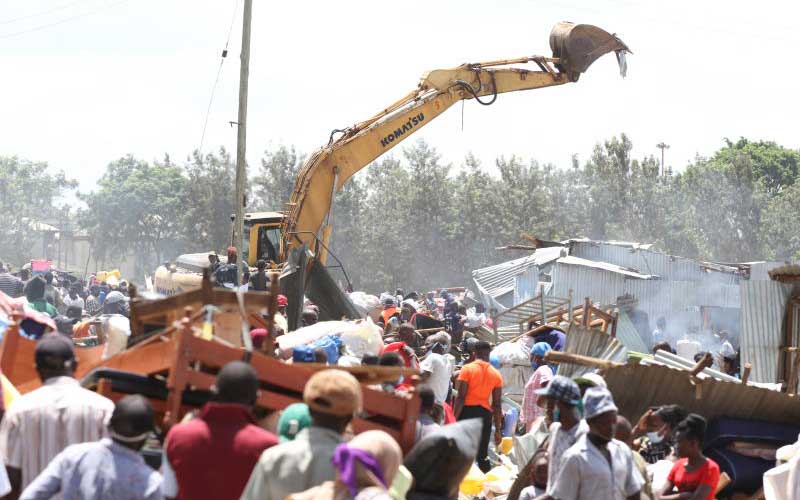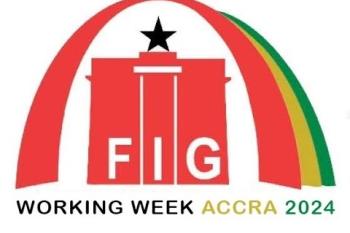
UN-Habitat policy statement on the prevention of evictions and relocations during the COVID-19 crisis
 An excavator tears into houses in Kajiji, Sewage area of Kariobangi North, May 4, 2020. Photo: Elvis Ogina www.standardmedia.co.ke
An excavator tears into houses in Kajiji, Sewage area of Kariobangi North, May 4, 2020. Photo: Elvis Ogina www.standardmedia.co.ke
Such evictions and relocations are a violation of the fundamental right to adequate housing and protection against forced eviction enshrined in the Universal Declaration of Human Rights and the International Covenant on Economic, Social and Cultural Rights. They also create significant additional risks in the context of the COVID-19 pandemic. Member States have an obligation to respect, protect and fulfil the right to adequate housing as a component of the right to an adequate standard of living. Denying residents and communities this right during the COVID-19 pandemic can have devastating consequences. These include increased exposure to COVID-19 and other infections in addition to exposure to insecurity and violence, the loss of income and limited access to socio-economic safety nets and basic services including health care. The relocation and eviction of long-term residents and communities, particularly from informal settlements, during the pandemic would not only violate their fundamental rights, but could also expose both them and the rest of the local population to an increased threat of exposure to the virus. Therefore, UN-Habitat urges Member States and governments at all levels to stop all relocations and evictions at this time. In exceptional cases where relocations or evictions are unavoidable, for example to prevent new land invasions, they must be conducted in accordance with international human rights obligations, as well as the relevant national laws, and the maximum possible protections should be provided to ensure the health and safety of those affected. In such exceptional cases, evictions must, at a minimum:
- Be proportional and provide for the evaluation of the decision’s impact on and potential benefit for various groups, including through an eviction impact assessment and community consultations. Evictions and relocations justified by planned physical development, or to repossess public land, should not be carried out during the COVID-19 crisis as they would put the health of residents and the entire population at risk and disproportionately affect their right to health;
- Promote general welfare and show evidence of such an outcome. Accordingly, during the COVID-19 crisis, only evictions and relocations directly aimed at preventing contagion among residents should be allowed. Furthermore, the expected benefits for affected populations and measures to mitigate the risks of contagion should be clearly and publicly outlined.
- Take immediate and substantial measures to secure the right to adequate housing for all, including through moratoriums on evictions due to rental and mortgage arrears; deferrals of mortgage payments; moratoriums on forced evictions of informal settlements; introduction of rental stabilization or reduction measures; suspension of utility costs and surcharges for the duration of the pandemic; and creation of emergency funds to reduce exposure for categories at risk;
- Provide for the basic needs of vulnerable communities or neighbourhoods, particularly food, water, sanitation and hygiene essentials, and primary health care. Nationally appropriate social protection systems can also address causes of homelessness and inadequate housing by preventing poverty particularly associated with lack of employment and by contributing to improved health.

